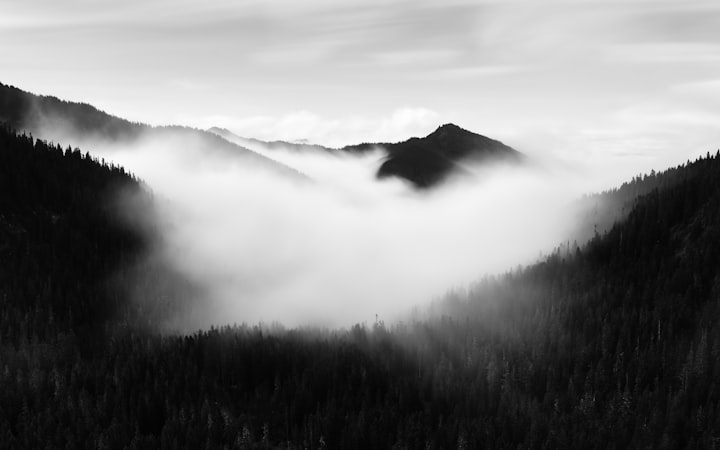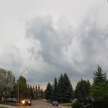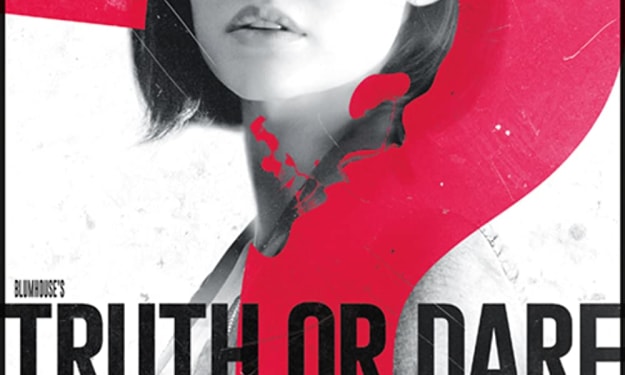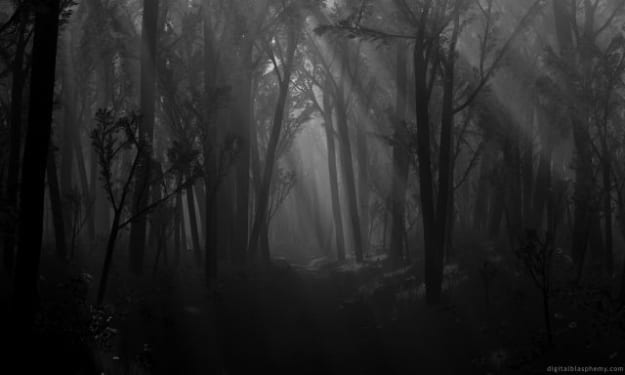The Counter-Intuitive Optimism of Frank Darabont's "The Mist"
How one of the most depressing horror movies of all time gives me hope for 2021

In November of 2020, BloodyDisgusting.com published an article titled "The 10 Most Depressing Endings in Horror Movie History." For fans of the genre, it was hardly a surprise that The Mist (2007) made the list. The Mist is one of those movies that's developed a reputation over the years. Just thinking about the ending can ruin your whole day. However, it's also one of those cultural artefacts that seem almost perfectly calibrated for the world we've found ourselves in after this past year of plagues and lockdowns, and I think that context merits giving The Mist another look. Parts of the story that used to feel otherworldly and abstract now land surprisingly close to home, and that famously depressing ending can actually be the source of a counter-intuitive hope. In case you aren't familiar with said ending or the Stephen King novella upon which the movie is based, consider this a big ol' spoiler warning for both of them.

Here's the short version for context's sake: after a violent storm, a mysterious mist blows across the world. Anyone who goes into the mist is attacked by horrible, nightmarish monsters. Our protagonist happens to be at a grocery store with his son and a random smattering of his neighbors when the mist rolls in, isolating them from the outside world. They're all stuck together unless they're willing to face the monsters hiding in the mist. Their little micro-community cracks into factions as various groups deny the existence of the monsters in the mist or attribute the whole disaster to God's wrath and so on. Part of the horror comes from the monsters and the violence they're capable of inflicting, but much more of the horror comes from the claustrophobic feeling of being trapped inside with other humans.
Across much of 2020, I found myself mentally returning to Stephen King's work because of The Stand. After all, there's a novel about a plague rolling through the planet, toppling our human institutions without a second thought. However, put aside the surface-level similarities, and The Stand bears little actual resemblance to the world of the covid-19. That plague is just there to clear the board, so to speak, so King can play a post-apocalyptic game. Meanwhile, The Mist actually grapples with a lot of the difficult emotions that the pandemic has caused. The Mist doesn't feature a plague, as such, but it does feature a group of people who are unable to separate from each other as they wait for the disaster to blow over. No one knows exactly what is in the mist or how long the mist will stay. No one knows how far it is spreading or where safety might be. People look for answers and clues, but for the most part the mist remains mysterious and unknowable, and if there are answers being found, they're not being found by our protagonists. Our protagonists are not the heroes who are capable of fighting off the mist. They're just stuck trying to live in the face of it.
The protagonists of The Mist are all of us who couldn't help stop the pandemic except by staying home, staying safe, and shrinking our lives down small. Many of us had to just accept that we were stuck, and we had to watch bits of our life drift by waiting for someone else to find a solution.
While The Stand is at least partially a story about a plague, The Mist is a story about a lockdown in the face of an overwhelming, unknowable problem. The protagonist doesn't know how to fix this disaster that has upended his world, so for most of the story--both in the novella and in the movie--all he can do is wait and try to maintain some semblance of society with his fellow survivors. There are villains within the story, but defeating those villains wouldn't rescue the protagonist or his son from the story's central problem. The titular mist cannot be defeated by our protagonist. It must be endured. There is no other option. Unlike the plague from The Stand, there is no immunity available for the characters from The Mist. A bad choice for any of them could be fatal. So what can they do? They can stay where they are and wait.

This is the kind of emotional territory which horror is particularly well-suited to navigate, and it is the kind of emotional territory which the whole world found itself thrust into in March of 2020. Before we had vaccines, we had stay-at-home orders and lockdowns and so, so, so many questions. The plague we faced might as well have been the mist, and all any of us could do was peer through our windows and try to make sense of the shapes we saw moving out there. Naturally, many of us clashed with our fellows--whether it was over covid conspiracies, or lockdown resistance, or just the day-to-day frustrations of being stuck together with no clear end in sight. Victory in any of those clashes did not end the plague. All we could do was wait and hope that someone else found a solution. We were all in the mist.
However, it wasn't any particular connection to the pandemic that earned the film version of The Mist it's spot on BloodyDisgusting's list of depressing horror movie endings. After all, it's been notorious within the genre's circles ever since it came out. Even King, when discussing the ending, said, "The ending is such a jolt — wham! — it's frightening." His commentary on the ending is particularly interesting since the ending of the movie diverges greatly from the ending King wrote for his novella. See, the novella doesn't really have an ending. It stops, sure, but it stops in an ambiguous state with the characters just poking around, hoping that they'll find some way out of this disaster eventually. The protagonist himself admits as such. It is not the sort of ending that would work well on film, and Darabont was wise to change it. So while the novella just sort of fizzles out at the end, Darabont's adaptation goes for the jugular: the protagonist, believing that all hope is lost, kills his own son, only to be rescued by the U.S. Army.
He killed his own son for nothing. Roll credits.

To call this ending optimistic might sound absurd, and I think that I wouldn't have seen any room for optimism in this morbid conclusion had we not just endured the horror of 2020 and the coronavirus pandemic. The ending is so terribly ironic. The protagonist believes that he's demonstrating the ultimate act of mercy by sparing his son from the mist, but the circumstances change and he realises that what he mistook for mercy was actually murder. It's like a bad joke, and it's so cruel that the audience can't help but wonder What if he'd just held on for a minute longer?That's all he needed to do: hold on. But no matter how many times you watch The Mist, it always has to play out the same way. It's like watching a Greek tragedy and wishing that this time our protagonists will see the disaster before the end comes. And in the dark sort of fun-house mirror effect that horror utilises so effectively, it becomes a cautionary tale about the power of hope and the danger of despair.
In a conversation between Joe Hill and Stephen King, available as part of the 20th Anniversary edition of the On Writing audiobook, Joe Hill has this to say about King's work: "It's a basic misunderstanding of [King's] work to imagine that he sells fear. Politicians sell fear. You know? I've always thought that [King's] stories sold bravery, that they essentially were making an argument that yeah, things might get really bad, but if you have some faith and a sense of humor, and if you're loyal to your loved ones, sometimes you can kick the darkness until it bleeds daylight."
Darabont's adaption of The Mist clearly understands that, but it chooses to depict this philosophy like a photograph's negative. If King's work, as Joe Hill argues, is about the power of faith, we see the power of faith in The Mist in the moments where faith runs out and the consequences that invites. There are monsters, yes, and there is gore, naturally. But there is also a reminder that sometimes the optimal course of action isn't strictly rational cynicism but a wild, undeserved hope. The irony in Darabont's ending is so clear that the audience can't help but say If only... and it is that if only that will haunt them. If only the protagonist hadn't given up. If only the protagonist had waited one more day. If only the protagonist had endured just a little big longer. He couldn't save the world, but he didn't need to save the world. He just needed to endure. A little faith could have saved his son.
Heroes emerged from the coronavirus pandemic, and they deserve to be applauded. But for the average people? Those of us who got caught in the grocery store with no option except to wait it out with the people who happened to be caught with us? We might not have had the option to save the world, but we did have the option to endure even when despair appears to be the rational course of action. The absurd, counter-intuitive optimism of Frank Darabont's The Mist says that enduring beyond hope might be all that is required to save us, and it might be the only thing that can save us.
About the Creator
Littlewit Philips
Short stories, movie reviews, and media essays.
Terribly fond of things that go bump in the night.






Comments
There are no comments for this story
Be the first to respond and start the conversation.